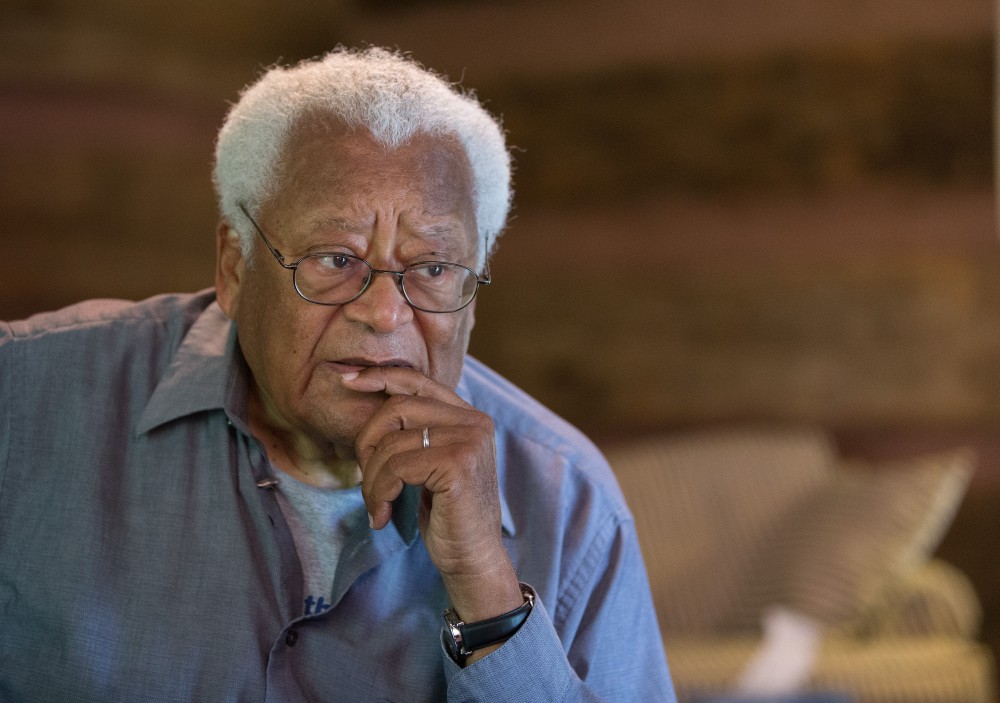Vanderbilt’s new Lawson Institute advances nonviolence work

One of the most celebrated and influential United Methodists is lending his name to an institute at Vanderbilt University that will promote and study nonviolence.
James Lawson, who has been called the “architect of the civil rights movement,” has given his blessing to the James Lawson Institute for the Research and Study of Nonviolent Movements at Vanderbilt University.
Lawson, 93, said in an interview that he will act as “spiritual adviser” to the institute, along with his ongoing work advising, teaching, and writing.
During an April 7 event to introduce the new institute, Daniel Diermeier, chancellor of Vanderbilt, noted that Martin Luther King Jr. had once referred to Lawson as the world’s leading theorist and strategist of nonviolence.
“Without Rev. Lawson’s strategic ingenuity, spiritual guidance and moral example, the civil rights movement as we know it would not have existed,” he continued.
The institute will “work toward a world with no violence,” said Phillis Isabella Sheppard, a professor of religion, psychology, and culture at Vanderbilt who was tapped as the institute’s first director.
“This is either a grandiose fantasy to believe that such a world is possible, or it expresses the most profound dimension to the work of this institute,” she said. “I think it is the latter.”
The Nashville model of nonviolence developed by Lawson, featuring sit-ins at downtown lunch counters, became a model for other cities in the 1960s. He had traveled to India in 1953 and worked as a youth minister for three years while studying Gandhian philosophy. Lawson said that what he learned from Gandhi was that there is a “science of nonviolence that is as effective as the science of electricity. . . . If you follow certain principles, you will find out that the consequences will be as predictable as the laws that surround ether and electricity. And that’s my thesis.”
After returning from India, Lawson was recruited to train and advise civil rights activists.
While studying at Vanderbilt Divinity School, he conducted workshops where he taught college students the principles of nonviolent protest. John Lewis, who would go on to serve more than 30 years in Congress, was one of his students.
Lawson was an adviser to the Freedom Riders, who were beaten while challenging segregation on interstate buses and bus terminals in the South. News footage of the violence caused a turning point in the civil rights movement.
He also advised the Little Rock Nine, students who desegregated Central High School in Little Rock, Arkansas, in 1957, following the Brown v. Board of Education Supreme Court ruling that segregation in public schools was unconstitutional.
Lawson invited King to assist with a 1968 sanitation workers’ strike in Memphis, Tennessee, where King was assassinated.
“[Lawson] paid a heavy price for his activism,” Diermeier said, noting that Vanderbilt expelled Lawson in 1960.
He finished his theology degree at Boston University. But the Vanderbilt expulsion was a national news story, and some students and faculty left because of it. Vanderbilt and Lawson eventually reconciled, and he has since returned to teach there and selected it as a repository for his papers.
From 1974 to 1999, Lawson pastored Holman United Methodist Church in Los Angeles, where he is now pastor emeritus. He continued after retirement from the church to lecture and train students in nonviolence.
“I maintain that nonviolent thinking and history and language is what a democratic society must have,” Lawson said. “If you don’t offer a nonviolent way of making changes, then you get January 6.”
Recruiting youth to the nonviolent philosophy will be a priority at the Lawson Institute, Sheppard said. Two groups, one for 13- to 17-year-olds and another for college students, will be formed. The younger group, called the youth council, will be comprised of students who want to learn about nonviolence. They will work on programming to attract their peers.
“The second group is the college cohort, where students from across Nashville’s local colleges will gather monthly to immerse themselves in thoughtful discussion to enhance their knowledge and commitment to strategic action,” Sheppard said. “This is not immersion for the sake of immersion, but immersion for the sake of change.”
Lawson maintains that a world of nonviolence is not a pipe dream but an achievable goal.
“One of the things that Gandhi taught me, by my study and research, is that nonviolent power is the creative power of life itself and the power that produced our universe and human life,” he said.
“If human beings could learn to tap and use that power, instead of the many powers that do exist, human beings will create a world that’s beyond our imagination because they will be tapping the energy that created us, whether they call that God or just the energy of the universe.” —United Methodist News Service





